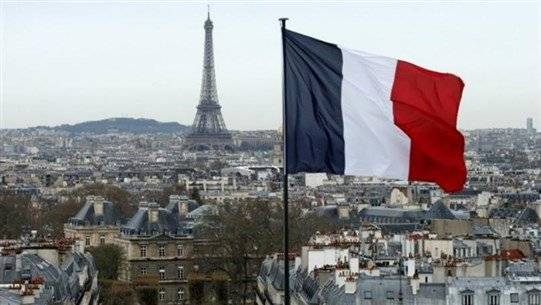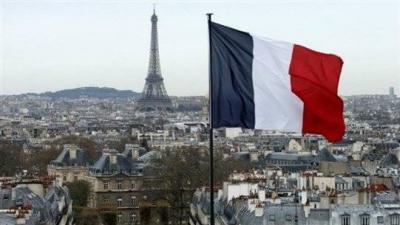Lebanon stands two weeks away from the end of President Michel Aoun's term on October 31, with no apparent signs of a political breakthrough that could facilitate the election of a new president within the remaining constitutional timeframe of his presidency. This comes amid the absence of international and regional leverage to achieve the presidential election by pressuring the key parliamentary groups involved, especially as foreign delegations visiting Lebanon are only urging the completion of the election on time to avoid pushing the country into a presidential vacuum that gradually leads it into the unknown.
The brief visit of French Foreign Minister Catherine Colonna to Lebanon is seen as a way to affirm French presence, according to a prominent political source to "Asharq Al-Awsat," as part of fulfilling obligations rather than a genuine initiative. Her visit appears to replicate the one conducted earlier by the Assistant Secretary-General of the Arab League, Ambassador Hossam Zaki, who also did not manage to make any significant impact to break the deadlock obstructing the presidential election.
The political source revealed that the French minister did not focus on the necessity of forming a fully representative government, as mentioned in the statement issued by the French embassy in Beirut. Instead, she brought it up during her discussions which primarily revolved around choosing a president capable of leading the Lebanese people and cooperating with international and regional players to overcome the financial crisis to ensure Lebanon's security and safety. She emphasized that her meeting with Parliament Speaker Nabih Berri centered on the need to elect a president within the constitutional deadline and to implement the necessary reforms to guide the country towards salvation.
Additionally, it was confirmed that she expressed satisfaction with the indirect agreement between Lebanon and Israel on maritime border demarcation mediated by the U.S., wishing that this agreement would influence the Lebanese agreement to facilitate the timely election of a president. The source noted that Colonna listened to a detailed explanation from caretaker Prime Minister Najib Mikati (currently in Jordan), outlining the obstacles that hindered the government's revival, alongside a similar presentation by Aoun, albeit from a differing perspective.
The political source did not rule out that the French minister might have attended closely to Mikati's presentation; otherwise, she would not have linked the formation of a new government to the election of a president in her press conference at Beirut's Rafic Hariri International Airport before departing for Paris, stating that after the election, a government would fully carry out its duties.
In this context, the source argued that the short time remaining no longer permits government revival, with the country on the brink of entering the final ten days of Aoun's presidency, which keeps Parliament in continuous session until a president is elected, and prohibits it from conducting any other business during this period. The parliament is transforming into an electoral body starting from the scheduled session next Thursday, preceded by a session tomorrow (Tuesday) marking the start of the regular parliamentary session, primarily designated for electing members of the parliamentary bureau and committees.
The source confirmed that General Security chief Abbas Ibrahim has halted his mediation between Aoun and Mikati aimed at reviving the government, leaving him currently focused on facilitating the return of a group of Syrian refugees upon their request. He is awaiting responses from Syria to expedite their return. Meanwhile, Hezbollah has not ceased its mediation and is currently exerting pressure to create conditions favorable for the government's revival, although the time factor does not allow it unless the revival remains below the conditions set by Mikati, to be announced without gaining parliamentary confidence.
The same source opined that reviving the government collides with conditions set by Aoun in response to the wishes of his political heir, Jibran Bassil, head of the Free Patriotic Movement. He noted that Bassil aims to expand the current government by adding six ministerial positions from politicians while replacing most of the ministers loyal to him, under the pretext of their allegiance to Mikati.
Furthermore, the mere fact that Aoun demands an expansion of the current government indicates his insistence on changing the political equation within the caretaker government, which would disrupt political balances. This is something Mikati and his supporting forces do not agree with, especially since the international community, along with the majority of political leaders, no longer finds justification for reviving the government; any expansion would inevitably mean Lebanon is heading into a prolonged presidential vacancy with the government's role becoming that of managing this vacancy.
The possibility of reviving the government has become a matter of the past; according to the political source, time constraints prevent any efforts towards its expansion, as communication channels in this regard have been severed between Aoun and Mikati, and between Mikati and Bassil. Their recent meeting in Baabda did not address the issue of government revival, instead remaining confined to a celebration preceding the announcement of the indirect maritime border demarcation agreement between Lebanon and Israel, with Aoun insisting on attributing the achievement to himself in solidarity with his son-in-law Bassil. This claim has met with silent objection from the Speaker of Parliament and the Prime Minister, given Aoun's insistence on monopolizing this achievement through American mediation.
The source concluded that Colonna's visit serves merely to symbolize solidarity and comes as a farewell meeting with Aoun, without any significant political implications, aside from urging him to act cautiously and not to allow any disturbances during his exit from Baabda immediately upon the end of his term to his family residence. This is crucial to maintain a peaceful transition, as the country cannot bear any shocks, whether political or security-related, or further escalations, especially if they take on sectarian implications.
The question remains: Will Bassil heed the French minister's advice, or is he preparing for an escalation of political tensions through his provocative stances, accusing Mikati of usurping the president's powers, ultimately placing his hand on the country, believing that through his populist positions he can rally his supporters and base?
This question also extends to the reasons that prompted him to exclude his ally Hezbollah from the accusations directed at all other conflicting parties, instead praising it despite having criticized it on multiple political occasions for not participating in the anti-corruption campaigns he led.
Bassil seems to be leveraging the surplus power of Hezbollah, threatening to run for the presidency to aim for a reshuffling of the political landscape by setting a series of conditions that do not apply to his bitter rival, the leader of the Marada Movement. He aims to elevate his political value, enabling him to sit at the big voters' table, seeking guarantees from Hezbollah that would allow him to find an alternative candidate who, in his view, could represent a continuation of Aoun's legacy.
Therefore, Bassil may face difficulties in leveraging political capital to polish his image through the role attributed to him in facilitating the maritime border agreement, recognized by Hezbollah, which has not commented on claims regarding Bassil’s support for the American mediator’s mission that was accomplished without linking it to the lifting of imposed American sanctions.
Thus, Bassil is seeking to organize campaigns of protest against Mikati on the grounds that he embarrasses his adversaries in the Christian street, who remain silent about his accusations of usurping the president's powers, believing he can rehabilitate himself to inherit the public sentiment that embraced Aoun before his ousting from Baabda on October 13, 1990, despite the changed political conditions leaving him with no ally but Hezbollah. They are mutually benefiting from their political services, driven by their respective needs for one another, in the absence of a Christian ally for the party alternative to the Free Patriotic Movement.
Finally, does Bassil aim from inflating his protest grievances to threaten and blackmail Mikati on one hand, while marketing himself internationally and regionally as a prerequisite for facilitating the presidential elections as Lebanon enters a presidential vacancy, although the decision in this regard remains Iranian and subject to Tehran's calculations? What will his reaction be if the political landscape is reshuffled with the candidacy of Army Commander Joseph Aoun? Can he maintain control over his popular base that largely owes its loyalty to the military uniform?




